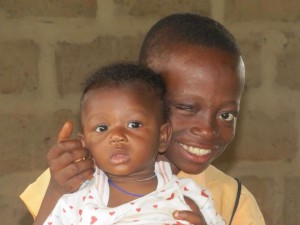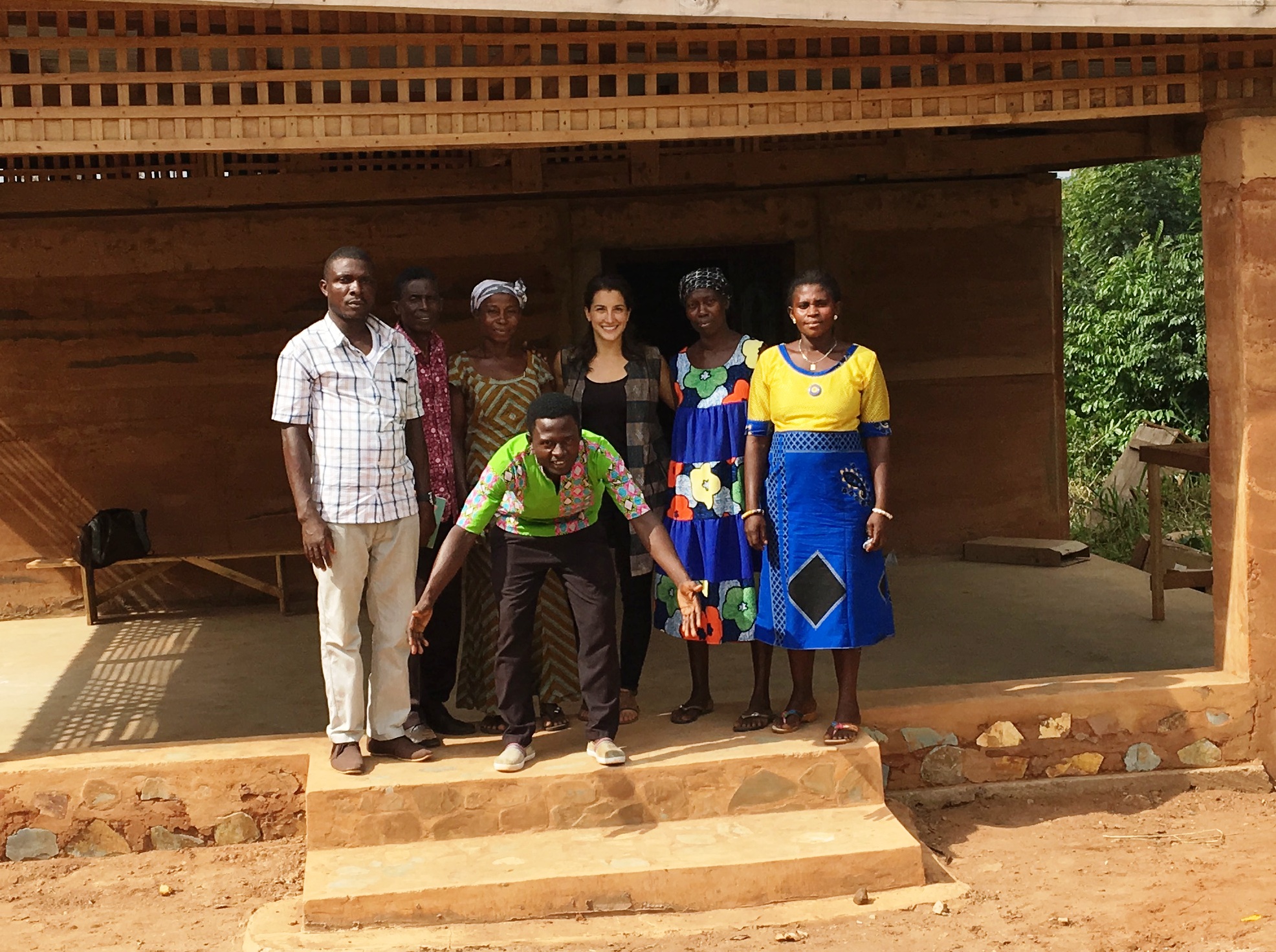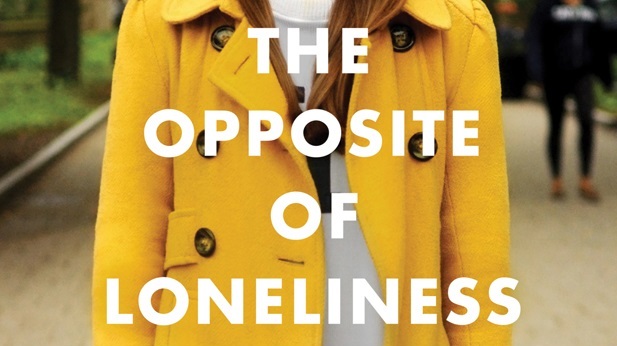
By Adam Hansell
Four years ago today, I woke up in a cozy hut next to nine other sleepy volunteers. I walked outside into the warm sun, where Lauren was slicing fresh mangoes and bread for breakfast, and Mama Vic was heating water on a wood stove-top for coffee. In the distance, I heard the sounds of kids laughing as they kicked one of the soccer balls I had brought for them. I closed my eyes and listened, picturing the amazement and gratitude in the kids’ faces when I had presented them yesterday with a ball that I had purchased for $5 at Wal-Mart. I recalled memories of being disgusted with certain gifts I had received as a child; an ugly sweater from Grandma instead of the video game I wanted, a $50 gift certificate to a store I loathed, etc. I didn’t realize it that morning in the village, but the dissonance I experienced at that moment would permanently alter my view of the world.
 The first two weeks I was in Ghana flew by far too quickly, and before I knew it, all of the volunteers were saying our goodbyes. Seeing the tears in many of the kids’ eyes, I couldn’t bring myself to say “goodbye.” Instead, I told them all, “I will come back. I will be back soon.” As our trotro (minibus) drove down the dirt road away from the village, I couldn’t remember a time in my life when I had felt so sad leaving a place. Prior to this trip, I had built up a solid travel resume, including trips to Disney World (twice), Denmark, Russia, Spain, and Alaska, but all of these trips paled in comparison to my time in Ghana. The night before we left, a few of the volunteers and I joked about throwing our passports in the fire just so we could stay in this amazing community a bit longer. We excitedly discussed how long it would take for the U.S. embassy to issue us new ones. One month? Two months? A year!? Obviously we never would actually have done it, but the fact that we consciously considered doing something so drastic speaks volumes to the magic of the Asiafo Amanfro community.
The first two weeks I was in Ghana flew by far too quickly, and before I knew it, all of the volunteers were saying our goodbyes. Seeing the tears in many of the kids’ eyes, I couldn’t bring myself to say “goodbye.” Instead, I told them all, “I will come back. I will be back soon.” As our trotro (minibus) drove down the dirt road away from the village, I couldn’t remember a time in my life when I had felt so sad leaving a place. Prior to this trip, I had built up a solid travel resume, including trips to Disney World (twice), Denmark, Russia, Spain, and Alaska, but all of these trips paled in comparison to my time in Ghana. The night before we left, a few of the volunteers and I joked about throwing our passports in the fire just so we could stay in this amazing community a bit longer. We excitedly discussed how long it would take for the U.S. embassy to issue us new ones. One month? Two months? A year!? Obviously we never would actually have done it, but the fact that we consciously considered doing something so drastic speaks volumes to the magic of the Asiafo Amanfro community.
I kept my promise, and I traveled back to the village a mere six months later with a new group of volunteers. Including my first visit, I have now been back to the Asiafo Amanfro community on four separate occasions, and the trips have always ended with the same tearful goodbyes and the promise that I would be back soon. Since my first trip, I have witnessed amazing developments throughout the village. The community school we helped build brick by brick is now thriving with over 100 students. The Akaa Project was able to raise enough money to drill two wells in the community as a source of clean water, replacing the dirty watering hole that had served as the community’s main source of water. In 2014, the Akaa Project’s annual fundraiser raised enough funds for the construction of sanitary latrines at the school.
While the Akaa Project has immensely improved living conditions in the Asiafo Amanfro community, we have experienced several tragedies that have highlighted the colossal gap between developed and developing countries. On my most recent trip, I accompanied one of our most beloved students, Benard, to the hospital along with his mother and Lauren. He had been severely under the weather for a few weeks, and we had decided that he needed professional medical attention. The hospital was completely different from what I expected based on my experiences in the United States. We entered the hospital around 3 PM, and a nurse led Benard to a dirty looking room and inserted a huge IV needle that could have been mistaken for a piece of PVC pipe. As 12-year-old Benard lay shivering on the rock-hard hospital bed, I felt totally and completely helpless. We didn’t see a doctor for at least three hours. As Lauren walked in and out of the room urgently trying to grab someone’s attention, I drew a face on my hand between my index finger and thumb, and talked to Benard in silly voices to try to take his mind off of the pain and fever. Eventually, a disheveled man in a white coat walked in, took Benard’s vitals, and gave him several bottles of different medications. The doctor’s examination took approximately five minutes. We finally left the hospital angry, sad, and exhausted, but these sentiments were dwarfed by our profound admiration for Benard, who had been amazingly stoic and upbeat during this experience.
A few weeks after I left the village, once again promising the kids that I would see them again soon, I received an email from Lauren. Early that morning on July 5th, 2014, Benard had died. I went into complete and utter shock, and started sobbing uncontrollably. To this day, I have not fully processed the fact that he is no longer on this earth, and I don’t think I ever will. I see him in my dreams and I hear his beautiful laughter in my head. I can’t help but think; what if? What if Benard had been a child in the United States? I have no doubt he would still be with us today. He would have been administered competent care in an up-to-date medical facility.
Benard had the rare mix of kindness, passion, and intelligence that college admissions committees and employers yearn for;  he had the potential to change the world. His death instilled in me a sense of obligation to humanity, to improve underdeveloped parts of the world so that other children like Benard will not be stolen away by treatable ailments. On one of my trips, another volunteer snapped a picture of Benard that captures everything about his spirit. He is holding a piece of paper on which he had written his name and drawn a girl and a boy. Smiling, he is eagerly showing his classmate Felix how he did the drawing, while Felix looks at him admiringly and tries to emulate his work.
he had the potential to change the world. His death instilled in me a sense of obligation to humanity, to improve underdeveloped parts of the world so that other children like Benard will not be stolen away by treatable ailments. On one of my trips, another volunteer snapped a picture of Benard that captures everything about his spirit. He is holding a piece of paper on which he had written his name and drawn a girl and a boy. Smiling, he is eagerly showing his classmate Felix how he did the drawing, while Felix looks at him admiringly and tries to emulate his work.
 A few weeks ago, I went to a tattoo parlor, and had Benard’s name, in his handwriting from that picture, tattooed on my right bicep to remind me of my obligation to the vulnerable youth of the world. The Akaa Project, its founder Lauren Grimanis, all of the volunteers, the donors, and the entire Asiafo Amanfro community give me hope in the midst of the collective sadness over Benard’s death. They give me faith that we, as a human race, are in this together to make this world a better place.
A few weeks ago, I went to a tattoo parlor, and had Benard’s name, in his handwriting from that picture, tattooed on my right bicep to remind me of my obligation to the vulnerable youth of the world. The Akaa Project, its founder Lauren Grimanis, all of the volunteers, the donors, and the entire Asiafo Amanfro community give me hope in the midst of the collective sadness over Benard’s death. They give me faith that we, as a human race, are in this together to make this world a better place.








Off